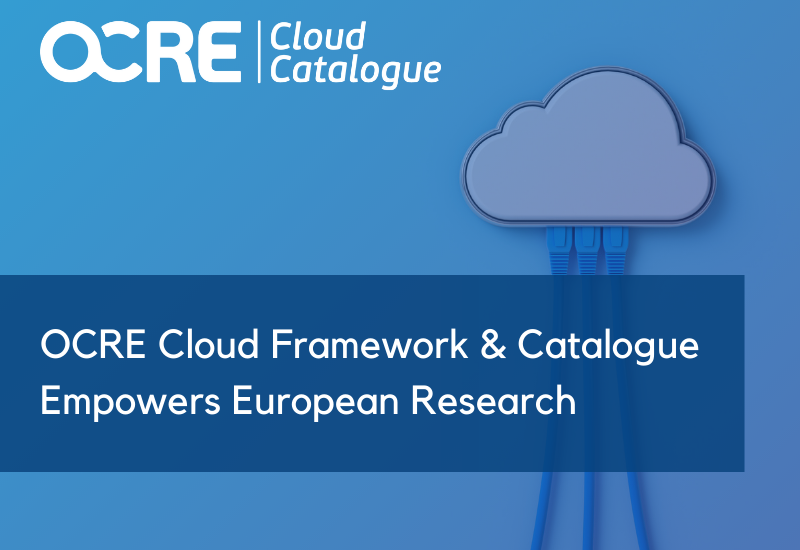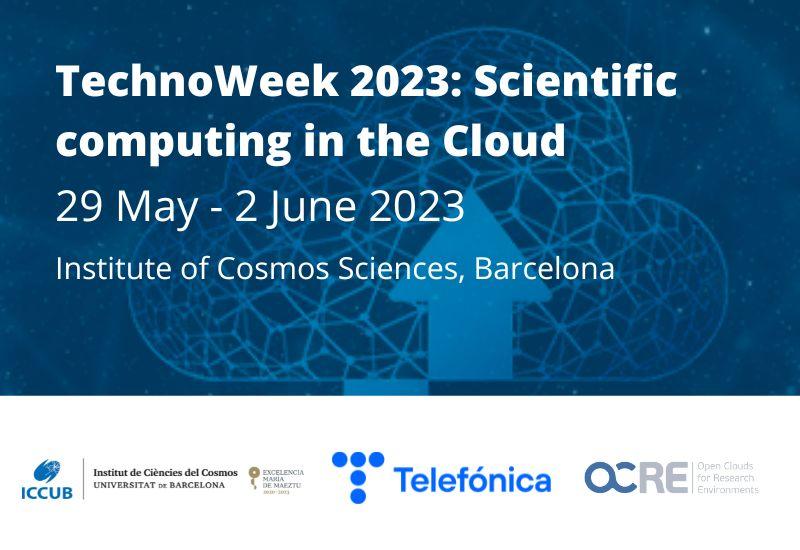
January 26,2021
News

Fifteen innovative research projects will benefit from commercial cloud solutions through EU cloud project Open Clouds for Research Environments (OCRE), demonstrating the effectiveness of cloud services in research.
€1.175 million will be distributed to the successful applicants, each receiving between €50,000 and €100,000. In its first call for the adoption of the cloud services available through the OCRE IaaS+ framework agreements, OCRE received 31 applications. All applications were screened by the OCRE cloud adoption funding team and overseen by the OCRE External Advisory Board.
The distribution of cloud adoption funding is a key milestone in OCRE’s goal of piloting a digital single market for cloud and digital services for European research. The research projects will be able to benefit from 27 different commercial cloud-based platforms that were sourced through the OCRE IaaS+ Tender concluded mid-2020 and will be made available in the OCRE Service Catalogue in the first quarter of 2021.
Through this single procurement, thousands of research institutions across the European Research Area will be able to benefit from easy and procurement regulation-compliant access to commercial cloud services.
OCRE Adoption Funding Lead Jan Meijer (Uninett) said:
Thanks to the good response to the call for projects we managed to assemble a balanced portfolio of 15 projects; showcasing the benefits of commercial cloud services on research outcomes from different angles. Our hope is that these showcases will inspire other researchers to follow in their footsteps and leverage the benefits of the OCRE portfolio of services for their research.
Among the OCRE-supported projects in machine learning and artificial intelligence (AI) are Utrecht University’s ASReview, which uses AI to reduce the manual work to review large quantities of text; University Singindunum of Serbia’s training algorithms for the intelligent control of swarms of drones; Katholieke Universiteit Leuven of Belgium which is creating self-supervised neural networks to analyse videos and images in order to give answers about their contents; and University of Debrecen, Hungary, which is examining how theoretical models applied in real-world tasks can be substituted by robust machine learning-based solutions.
Several projects relating to healthcare are Medicopus.'s research into the role of positron emission tomography screening data in predicting cancer treatment response; ETH Zurich’s use of AI to make volumetric medical image analysis techniques more flexible and effective across domains; and Heriot-Watt University’s improvement of respiratory drug administration techniques by simulating the way aerosol drug particles are delivered in the lungs - a previously unachievable simulation made feasible using the powerful cloud computing services supported by OCRE.
In materials science projects supported by OCRE, the University College London is using quantum chemistry to find materials that can convert waste heat directly into electricity. Another project from the University of Bath, United Kingdom, is investigating the quantum mechanics of new two-dimensional materials, linked to experimental data from several synchrotrons.
The Fraunhofer Institute for Integrated Systems and Device Technology IISB is developing a new intelligent power inverter by combining inverters (feeding power to electric motors, e.g. in cars or conveyor systems) with on-board and cloud-based AI.
In astrophysics, the Universitat de Barcelona, Spain, will use the December 2020 Early Data Release 3 (EDR3) of the European Space Agency mission Gaia to investigate Milky Way star formation and its interaction with its satellite galaxies, employing OCRE’s cloud resources for data mining, N-body simulations, and Bayesian techniques on the Gaia catalogue containing 1.8 billion sources.
OCRE will also support innovations in climate research through the Royal Netherlands Meteorological Institute (KNMI) which will provide a consistent, homogeneous, up to date, and validated reprocessed vertical ozone profile data set based on a new GOME-2 L1b data set, the reprocessing of which will be done using OCRE’s cloud services which will reduce the necessary processing time by several months.
Thanks to the OCRE funding, CERIC-ERIC, Italy, is setting up a mini-EOSC (European Open Science Cloud), supporting all of the Consortium members in developing their own FAIR (Findable, Accessable, Interoperable, and Reusable) enabled workflow, processing it, and making it available after embargo via the respective commercial cloud platform's infrastructure.
In economics, OCRE is supporting Leiden University, Department of Economics, Netherlands in investigating housing search behaviour using user-generated data from a real estate platform. OCRE's cloud funding provides the opportunity to do such a large scale research project with limited personnel.
Finally, the Consortium for the Construction, Equipping and Exploitation of the Synchrotron Light Source (CELLS), Spain, will use the dynamism offered by OCRE’s cloud computing services for the forecasting of present and future requirements and capacities for the analysis of scientific datasets produced by the experiments performed at the ALBA Synchrotron, allocating efficient computing capacities for each experiment and becoming much more agile in providing the resources and tools needed to help scientists make the data FAIR.
Further calls are expected to be launched in 2021. To be informed when calls are launched, join the OCRE community network at www.ocre-project.eu/join.



